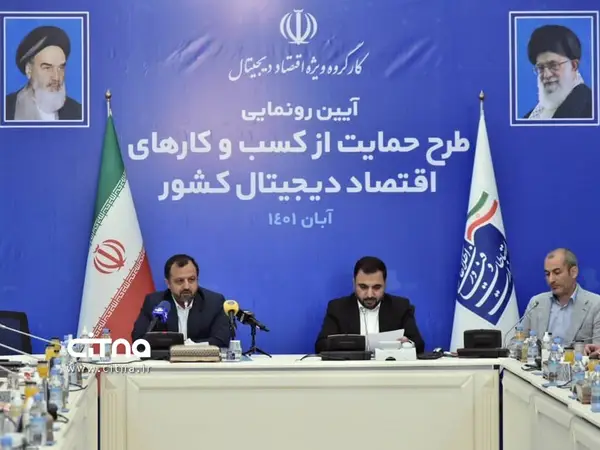Amid internet shutdown to prevent spread of information about the ongoing protests, the Islamic Republic plans to provide high-speed internet to "accredited” digital businesses.
The frequent government shutdown of internet access has caused serious disruption for individuals and small businesses based on digital sales and marketing.
The new measure, dubbed “Regulations to support freelancers active in the country's digital economy," was ratified by the government’s digital economy taskforce on Saturday in 10 articles, which probably will lead to strict monitoring of online activities and ensuring that regime supporters have internet access.
The use of the term ‘freelancer’ might be misleading. The definition in the regulation points to individuals or companies that apply as active in digital economy and approved by the government.
Headed by Communications and Information Technology Minister Issa Zarepour, the taskforce was established last year to coordinate the government’s supervision on online activities among four ministries.
It defines a freelancer and its range of services, includes instruction on how to create a database of digital ‘freelancers’, sets criteria on their accreditation and how government institutions should interact with them, as well as some insurance and financial matters.
According to the new regulations, the computer trade union has been tasked to set up a database of ‘freelancers’ and their activities within three months.
In its article 8, the Ministry of Information and Communications Technology has been tasked with providing the necessary infrastructure for “high-speed and stable Internet with appropriate level of access for accredited people," without clarifying on the “appropriate access” or who are the “accredited people.”
In another article, the government claims that in order to supervise the “fairness and transparency” of the contracts between freelancers and employers, instructions have been issued for monitoring software platforms. According to the document, the regulations for accreditation into the database will be announced by the ministry upon collaboration among Ministry of Information and Communications Technology, the country's computer trade union organization; Ministry of Cooperatives, Labour, and Social Welfare; Ministry of Culture and Islamic Guidance; the presidential office of Science and Technology and Knowledge-Based Economy; and last but definitely not least the Intelligence Ministry.
Many Islamic Republic officials, such as member of the parliament Javad Hassanikia and former Information Minister Mohammad-Javad Azari Jahromi, have talked about providing internet access to university professors or journalists. The move can be a measure to justify replacing the country’s internet with an intranet for the general population who will be disconnected from the world wide web and controlled by the regime’s limited domestic access. Azari-Jahromi was one of the main supporters of the idea of stratifying Internet access inside the country. In an address to the parliament, he defended the idea saying it is not possible to provide the same type of internet to all jobs and ages in the country.
Like almost all measures by the Islamic Republic that sound innocent but pursue ulterior motives, the new move is titled “regulations to support freelancers” but is meant to suppress any critical voice and cajole those who want normal access to the internet to be on the regime’s side. It means that if you want to have access to the internet, the government should be able to monitor your work and make sure you do not engage in any activity or cooperate with anyone the regime deems hostile.
